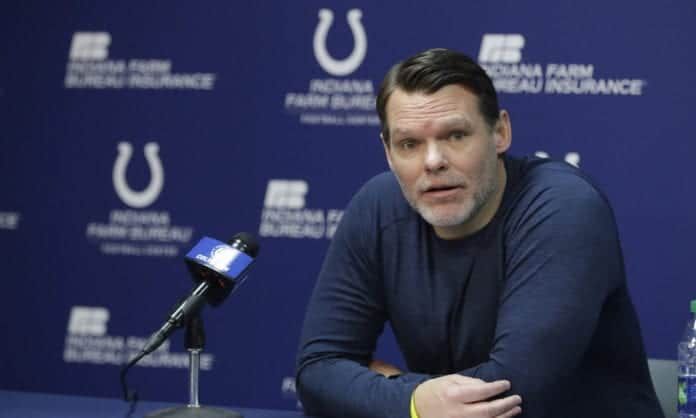
24. Steve Keim – Arizona Cardinals
Forget everything you ever knew of Steve Keim’s tenure out in the desert; it’s just a memory now. Keim’s legacy with Arizona will all be based off if this offseason pans out or not. Electing to regroup after finishing 3-13, Keim fired first-year head coach Steve Wilks in favor of quarterback guru Kliff Kingsbury. While the offensive trend is hot thanks to Sean McVay, Kingsbury struggled immensely in his final three seasons at Texas Tech.
Keim then doubled down, electing to move on from Josh Rosen only a year after trading up for him. Shipping the former top-10 pick to Miami, Keim used the first overall pick on Heisman winner Kyler Murray. Unlike seasons prior, he built around his future quarterback with weapons for Murray’s arsenal. Andy Isabella’s speed should pair well with Christian Kirk while Hakeem Butler’s size should help win in single man coverage.
Keim took a career-defining risk in selecting an undersized project in Murray. Should the former Sooner hit and Rosen struggle, this will be a big win for his credibility in scouting. If it’s the opposite, Keim’s trade could go down as the worst quarterback move since Brett Favre was shipped off to Green Bay.
23. Chris Grier – Miami Dolphins
Chris Grier might be low on this list but should be an executive on the rise if the rebuild truly works. Tasked with the job of building the foundation for the future, the fourth-year GM was forced to make some cuts. Frank Gore is now in Buffalo, Danny Amendola is out in Detroit while fan favorite Cameron Wake is off to Tennessee. To help build for the future, Grier extended cornerback Xavien Howard to a five-year, $76.5 million contract extension. Sure, they might have overpaid a little, but Howard has impressed in man coverage the past two seasons.
Come draft time, Grier is walked out a big winner. Christian Wilkins is a Brian Flores player who will shine as the team’s three-technique for years to come. Michael Dieter should be a full-time starter in the future at offensive guard, helping to protect the quarterback. Speaking of quarterback, Grier pulled off a highway robbery by trading a low second and fifth-rounder for Josh Rosen.
It’s a win-win for Grier and the Dolphins. Should Rosen shine next season, Miami can address another need in the first round. Should he regress more than in Arizona, the team still has a first-rounder to draft a signal caller in 2020. The Dolphins aren’t great, but Grier undoubtedly made them better for the long-term plan.
22. Brian Gutekunst – Green Bay Packers
If there’s one thing we can say about Brian Gutekunst — he’s not Ted Thompson. Take that how you will, the Packers’ new GM wasn’t shy about making moves in the offseason and moving from veteran contracts. That could be a great thing or a colossal backfire once this season comes to close.
Gutekunst upgraded the pass rush by moving on from Clay Matthews and Nick Perry in favor of Preston Smith and Zadarius Smith. Still, acquiring them cost Green Bay a ton ($118 minion combined for four-years) and limited the need of addressing wide receiver. Green Bay also found Ha-Ha Clinton Dix’s replacement in former Bears safety Adrian Amos on a four-year deal.
Gutekunst’s draft overhaul might be mixed with reviews since it was just a “meh” class. Rashan Gary is a quality prospect but comes with a high-risk factor. Also, was he a need after signing two pass rushers just two months prior? Darnell Savage was an excellent selection for the secondary as his cover skills should pair nicely in the young core. Elton Jenkins and Jace Sternberger could be starters but were also the only two offensive players drafted in the first three rounds.
Gutekunst has built the defense up to be one of the league’s best this season. That side of the ball, however, was never really a problem heading into the offseason. Aaron Rodgers needed weapons and a flex tight was all he got to work with. It was a mediocre offseason for Gutekunst and the Packers; not a good one but also not the worst one.
21. Brett Veach – Kansas City Chiefs
Legitimate question: what exactly has Brett Veach done to earn the type of respect some people are giving him? The four biggest stars on Kansas City’s offense the past two seasons were all drafted by former GM John Dorsey. So seriously, is it time for Veach to feel the heat? After this offseason, it most certainly feels like it.
The Chiefs offseason was productive, especially on the defensive side of the ball. Veach hired Steve Spagnuolo as defensive coordinator and elected to change schemes after a horrendous outing in the AFC Championship. Veach also gave up a first-round pick to acquire Frank Clark and sign the defensive end to a lucrative deal. Additionally, Kansas City added Tyrann Mathieu and Juan Thornhill to help fix their secondary for the immediate future.
However, Kansas City couldn’t have had a worse offseason from a public relations perspective if they tried. After failing to work out a deal with Dee Ford, they shipped him off to San Francisco only to sign Clark weeks later.
Wait. What? They couldn’t pay Ford, so they traded away a first-round selection to sign Clark to more than Ford’s deal out west? On top of that, Kansas City parted ways with franchise players Eric Berry and Justin Houston.
Then we have the Tyreek Hill situation. After a month of investigation for alleged child abuse, the speedy weapon is still on the roster. That’s far from a good look for a franchise, and there still is no guarantee he’ll ever play another down. Veach is about to prove his worth coming into this season. We are finally about to know exactly who he is.

